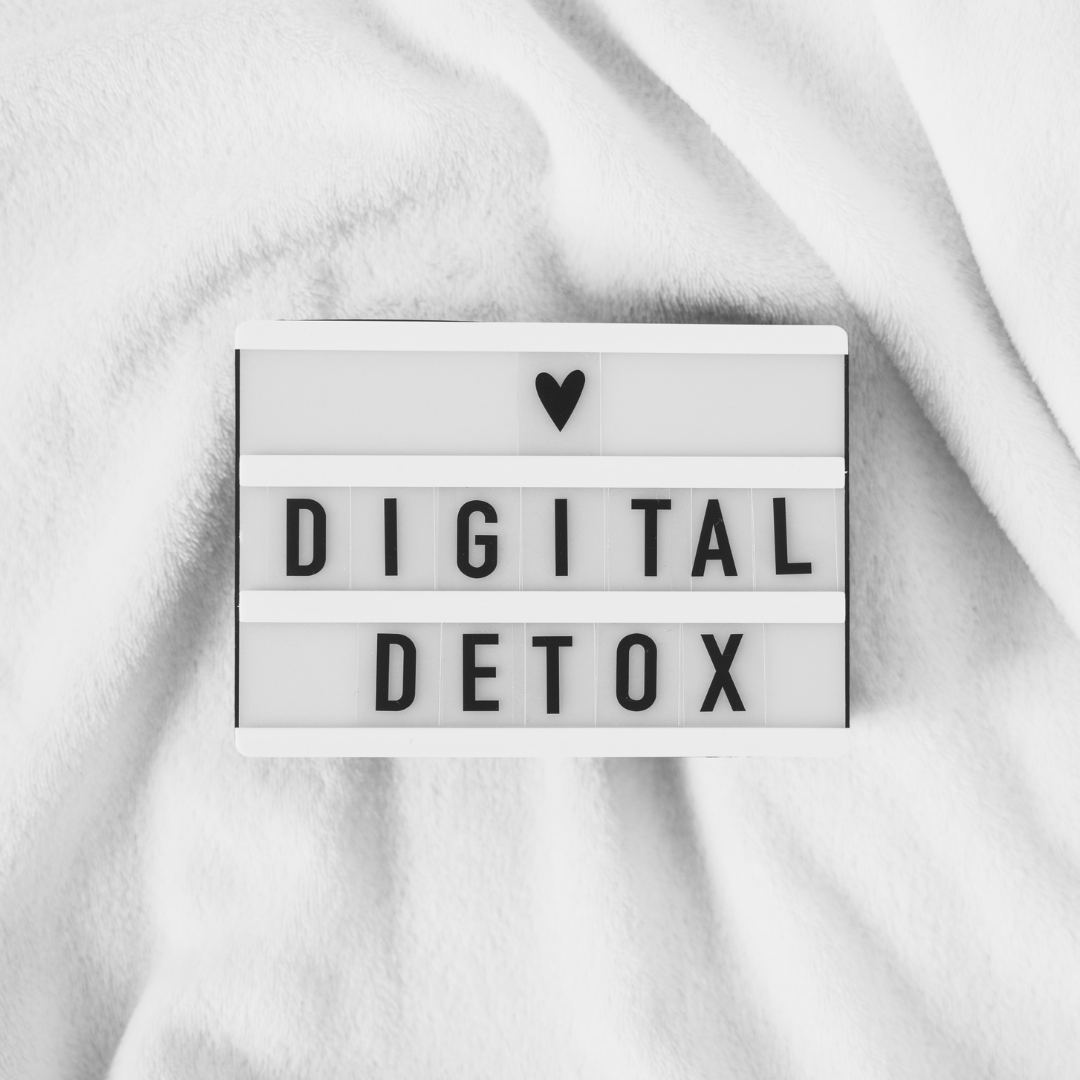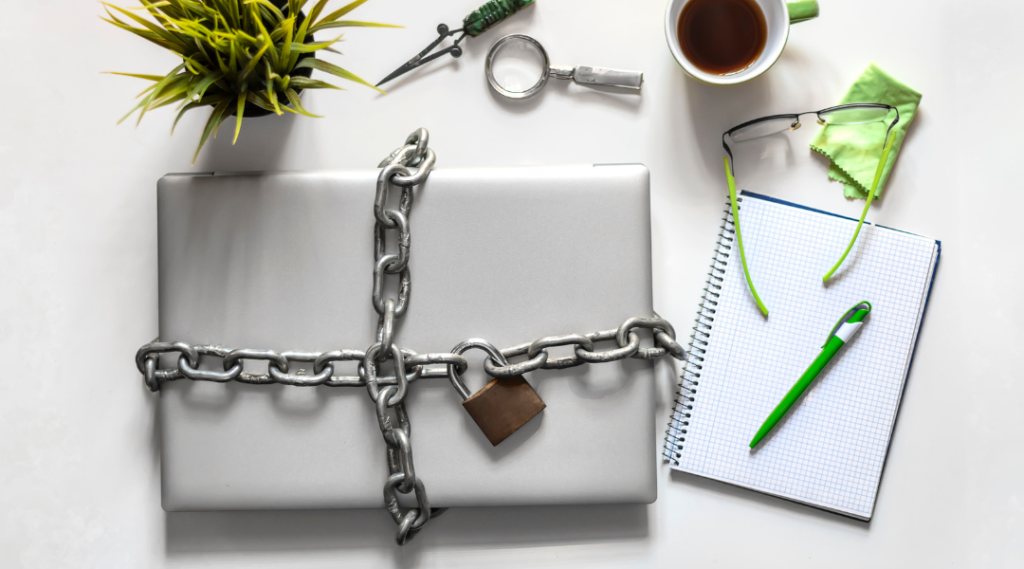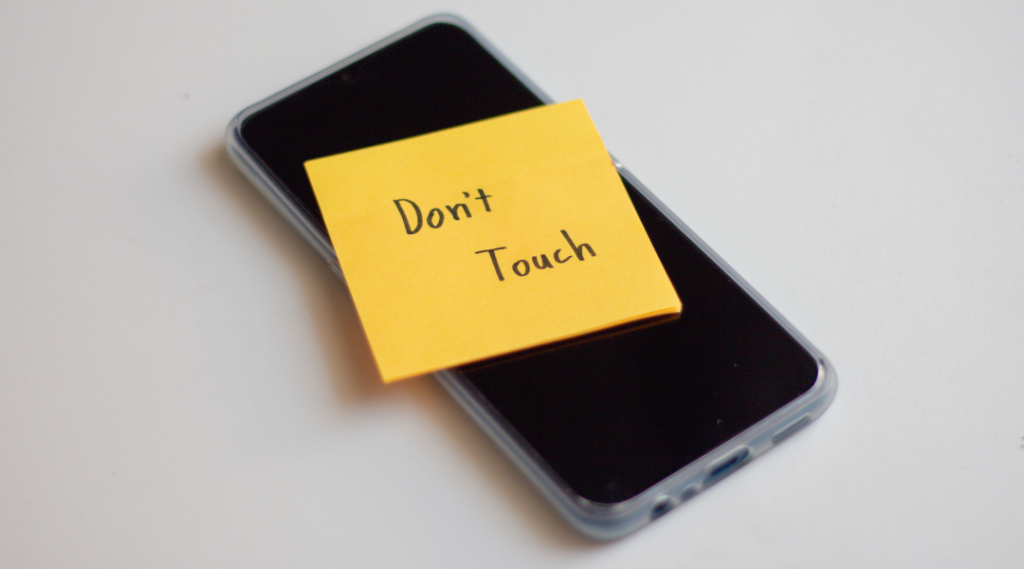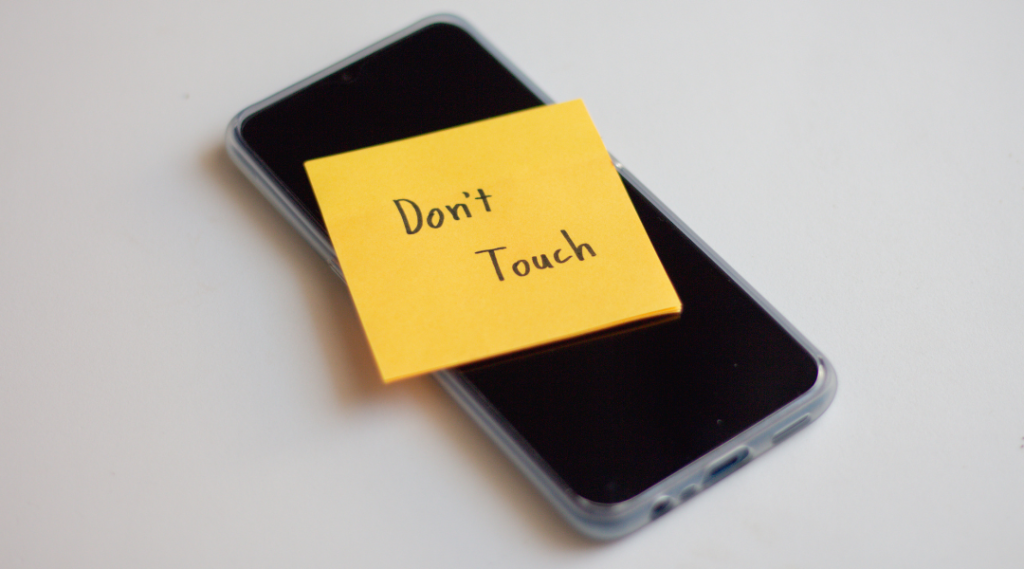How To Do A Technology Detox (+ 3-Day Digital Detox Challenge)

What is A Technology Detox?
A technology detox, also known as a digital detox, is a temporary period of reducing or eliminating the use of digital devices and technology.
During a technology detox, it’s typical to disconnect from all kinds of screens, such as smartphones, computers, tablets, TVs and more, in order to fully reap all the benefits of the digital detox.
Though technology, the internet, and social media can offer lots of useful information in our lives, it’s important to know the limits of these gadgets and when to put them down.
What’s great about technology detoxes is that they’re extremely flexible. How long you choose to do a technology detox is completely up to you. Some technology detoxes can last as little as 30 minutes, all the way up to one week, or one month (or longer, there is really no limit).
Not only can you choose how long your technology detox will be, you can also choose what your digital detox consists of. For example, you can tweak the detox to only limit certain technology devices, like eliminating your use of TV or Tablet, or maybe you choose to stay off certain apps, like Facebook or Instagram.
Stay tuned til the end of this blog post to take part in a 3-day digital detox challenge!
In this blog post you will learn:
- What is A Technology Detox?
- Why We All Need A Technology Detox Every Once In A While
- Benefits of A Technology Detox
- Technology-Free Vacations
- Signs You Need A Technology Detox
- Challenge: The 3-Day Technology Detox
- Technology Detox Books
- Technology Detox Stress Reduction Studies

Why We All Need A Technology Detox Every Once In A While
In the increasingly digital and connected world we live in, a technology detox has become essential for everyone’s well-being. Regularly disconnecting from technology offers a range of benefits that help us maintain a healthier relationship with screens and regain a sense of balance in our lives.
Taking a break from screens helps restore the balance between our digital and physical lives, allowing us to nurture our mental and emotional health on a much grander scheme.
It’s been proven that continuous exposure to screens and digital demands can lead to information overload and increased stress. A technology detox allows us to step away from the constant barrage of notifications and information, providing our minds with a much-needed break.
Benefits of A Technology Detox
A technology detox offers a range of benefits that contribute to improved well-being and a healthier relationship with digital devices.
By disconnecting from screens, we can alleviate digital fatigue, reduce stress, and enhance mental clarity. This break allows for increased mindfulness, better sleep quality, and improved face-to-face interactions, fostering stronger connections with loved ones.
Additionally, a technology detox offers the opportunity to engage in offline hobbies, outdoor activities, and self-care practices, promoting a balanced lifestyle and reducing the negative impacts of excessive screen time on both physical and mental health.
5 additional benefits of taking a technology detox:
- Mindful Consumption: Taking a break allows individuals to reassess their online content consumption and make conscious choices about what to engage with.
- Improved Focus and Productivity: Detoxing from screens can enhance concentration and productivity by minimizing distractions and promoting deep work.
- Increased Presence: Disconnecting from technology fosters mindfulness, enabling individuals to be fully present in real-life experiences and interactions.
- Rekindled Creativity: Taking a break from screens can spark creativity and innovation by giving the mind space to explore new ideas.
- Appreciation for Silence: Detoxing from constant digital noise provides an opportunity to appreciate moments of silence and solitude.

Technology-Free Vacations
Technology-free vacations, also referred to as tech-free travel, have gained tremendous popularity around the globe, and for good reason. Technology-free trips are intentionally designed to disconnect from digital devices and embrace a break from constant connectivity.
During technology-free vacations, people or families will choose (or sometimes be forced) to temporarily put aside their smartphones, tablets, laptops, and other gadgets in order to fully immerse themselves in the present moment and the physical world around them.
You can often find tech-free travel opportunities offering yoga retreats, hotel and spa getaways, nature camps and eco-lodging as just a few examples.
Signs You Need A Technology Detox
Not sure whether to do a technology detox just yet? Here are a few examples of whether a digital detox may be right for you.
- Constant Distraction: If you find it difficult to focus on tasks or conversations due to frequent notifications and digital distractions, it’s a sign that you could benefit from a technology detox.
- Sleep Disruption: If you’re using screens late into the night, leading to poor sleep quality or insomnia, a technology detox can help improve your sleep patterns.
- Increased Stress: Feeling overwhelmed by the constant stream of information, social media, and work-related emails can indicate a need for a break from screens.
- Digital Dependency: Feeling anxious or uneasy when you’re separated from your devices suggests that you might be overly reliant on technology.
- Comparison and FOMO: Frequent comparison to others on social media and experiencing the fear of missing out (FOMO) can negatively impact your well-being.
- Overwhelmed by Information: If you’re inundated with information from various sources and struggling to discern valuable content, a technology detox can provide clarity.
- Shortened Attention Span: If you’re finding it difficult to engage in activities that require sustained attention, your attention span might be impacted by excessive screen use.
Challenge: The 3-Day Technology Detox
For the 3-day technology detox, you will repeat days 1-3 following the steps below. This detox is meant to be flexible so feel free to customize it to your schedule.
It’s up to YOU how strict or dramatic you take the technology detox. Whether you’re looking to rid yourself of all screens for 3 days, or looking to cut down, these guidelines will ensure you cut down or completely ditch your screens.
3-Day Technology Detox: DAY 1-3
Morning:
- 6:00 AM – 6:15 AM: Wake up early, without using your phone as an alarm. For the first 10-15 minutes of your day, start with a brief morning meditation or deep breathing exercises to set a focused and mindful tone. Practice the art of mindful mornings from the moment you get out of bed.
- 6:15-6:30: Drink a full glass of warm to room temperature water (add lemon for extra detox benefits). Practice gentle stretches such as neck rolls, shoulder rolls, or toe touches to get your blood circulating.
- 6:30-7:00: Practice a skincare routine and proper oral hygiene. Brush your hair, and put on a set of workout clothes.
- 7:00-7:30: Practice physical exercise. This can mean going for a walk or light jogging around the block, going to the gym, or staying at home on the treadmill.
- 7:30-8:00: Shower, and put some work clothes on.
- 8:00-8:30: Prepare a healthy breakfast, and make it a screen-free breakfast. Enjoy the taste of your food, and the little moments while being off your phone.
- 8:30-9:00: Prepare for work/daily activities.
Afternoon:
- 12:00 PM – 1:00 PM: Enjoy a technology-free lunch. Disconnect from screens entirely during this time and savor your meal while practicing gratitude. Journal about your morning, what you liked most about it, or what you could have done differently.
Evening:
- 5:00 PM – 8:00 PM: Engage in a physical activity such as a brisk walk, jogging, or yoga, without using any digital devices for tracking or entertainment.
- Consider a few of these no-screen activities for your evening:
- Cook or Bake: Try out a new recipe or bake some treats from scratch.
- Read a Book: Choose a book you’ve been wanting to read and get lost in its pages.
- Arts and Crafts: Work on a creative project like adult coloring, collaging, scrapbooking, painting, or crafting.
- DIY Projects: Work on a DIY project or organize and declutter a space in your home.
- Music: Play a musical instrument or listen to your favorite tunes.
- Socialize: Have a face-to-face conversation with loved ones, share stories, or play charades.
- A great activity for face-to-face interactions includes board games, puzzles, or various forms of arts and crafts. If you want to be fancy, enjoy an at-home wine tasting with your friends and loved ones.
- Outdoor Time: Spend time outdoors, whether it’s a walk, stargazing, or sitting by a fire.
Nighttime:
- 8:00 PM – 10:00 PM: Create a relaxing evening routine by dimming the lights, burning a candle, and tidying up your living space.
- Wind down with a soothing herbal tea (decaffeinated) and engage in a relaxation practice, such as progressive muscle relaxation or guided imagery.
- Pamper yourself with self-care activities, like taking a bath, doing a face mask, conditioning your hair, and more. Find ways to improve your nighttime self-care routine.
- Check out The Ultimate Guide For Better Sleep to make sure your following nighttime practices that promote restful sleep and overall healthy well-being.
Remember that during this technology detox, your aim is to minimize screen time as much as possible and fully engage in offline activities.
Disconnecting from screens can offer you a chance to recharge, connect with the present moment, and experience the world without the constant digital distraction.
Be sure to customize the schedule and activities according to your preferences and needs while keeping the focus on embracing a technology-free experience!

Technology Detox Books
Now that devices have taken over our lives, more authors are coming out with books on the negative effects of technology and the benefits of digital detoxes.
If you want to dive deeper into the topic of screens and technology detox, consider a few of these popular choices below.
- The 3-Step Digital Detox System: 81 Solutions to Beat Technology Addiction and Reduce Screen Time (Neil Cooper)
- Digital Detox: Why Taking a Break from Technology Can Improve Your Well-Being (Bernadette H. Schell)
- Social Media And Depression: How To be Healthy And Happy In The Digital Age (Gregory L. Jantz PH.D.)
- Digital Detox: The Ultimate Guide To Beating Technology Addiction, Cultivating Mindfulness, and Enjoying More Creativity (Damon Zahariades)
Technology Detox Stress Reduction Studies
If technology books aren’t your thing, consider checking out online articles. Here are 3 academic case studies of how technology can be linked to stress:
- Exploring the Relationship Between Technology Use and Mental Health Among Adolescents” (2019). Published in JAMA Pediatrics, this study investigated the link between screen time and mental health in adolescents. Findings suggested that higher levels of screen time were associated with increased symptoms of depression and anxiety. Limiting screen time was recommended as a potential strategy to improve mental well-being.
- The Impact of Digital Detox on Stress Reduction and Work-Related Outcomes” (2020). Conducted by researchers from the University of Gothenburg, this study focused on employees who participated in a digital detox intervention. The participants reported decreased stress levels and improved work-related outcomes, emphasizing the positive effects of reducing technology use in a work context.
- Digital Detox: The Effect of Smartphone Abstinence on Cortisol and Working Memory” (2021). Published in the Journal of Behavioral Addictions, this study examined the physiological and cognitive effects of smartphone abstinence. Participants who abstained from smartphone use for a short period exhibited reduced cortisol levels (a stress hormone) and improvements in working memory performance.

Bottom Line: How To Do A Technology Detox (+ 3-Day Digital Detox Challenge)
Technology detoxes are essential to counterbalance the increasing digital saturation in our lives, allowing us to regain focus, mental clarity, and meaningful connection to the physical world and our surroundings.
Taking regular technology detoxes enables us to break the cycle of constant digital consumption, reduce stress, and cultivate real-life experiences, fostering a healthier balance between screen-mediated interactions and genuine human interactions.
When we practice technology detoxes, we are ultimately promoting our overall well-being and a more mindful and intentional use of technology.